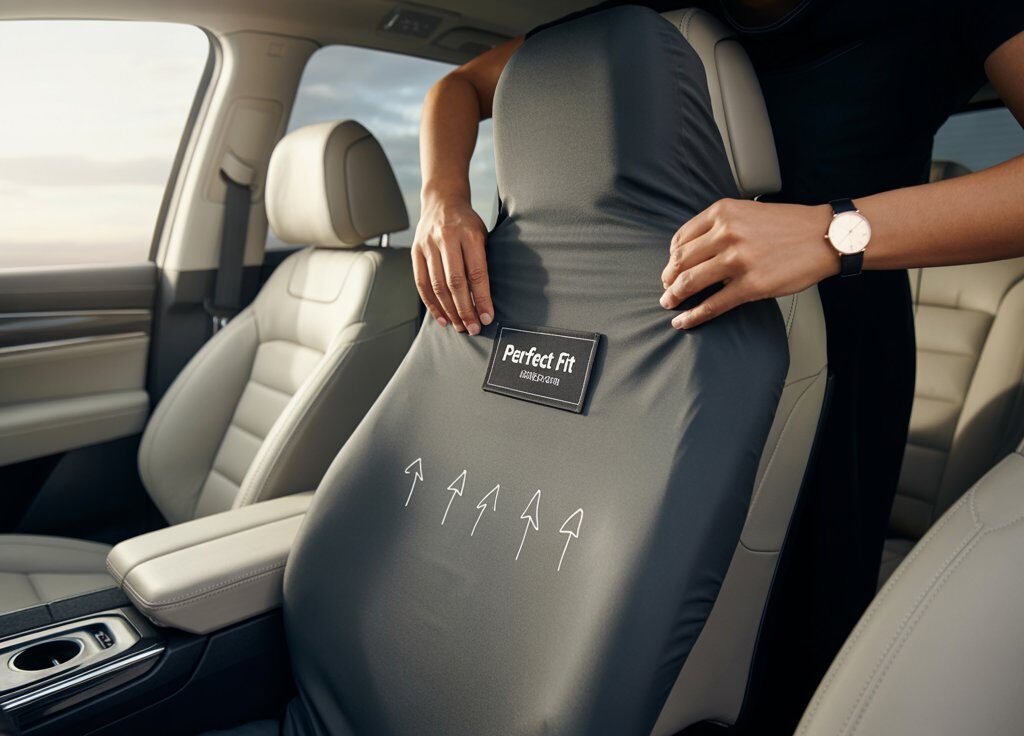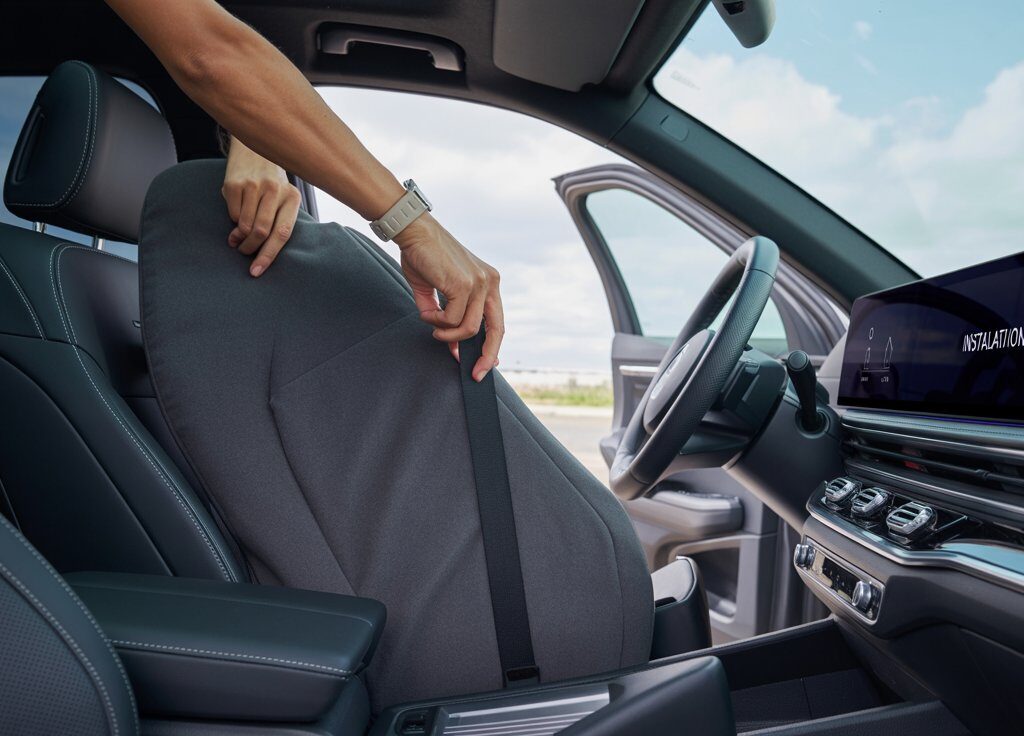
Introduction
Protecting your car’s interior doesn’t have to be difficult or expensive—sometimes, the smallest upgrade makes the biggest difference. Whether you’re aiming to preserve your seats from daily wear or add a touch of style, learning how to use car seat cover properly can instantly enhance your driving experience. From preventing spills and stains to maintaining resale value, seat covers offer a practical solution for any vehicle owner. This guide will walk you through simple steps, product insights, and easy car seat cover installation tips, making it ideal for those searching for user-friendly seat cover solutions that combine comfort, protection, and ease.
Table of Contents
1. Who Should Use Car Seat Covers?
Car seat covers are ideal for daily drivers, pet owners, parents, and rideshare drivers looking to protect their interior from wear, spills, and stains. They are especially useful for those with leather seats, as covers help prevent cracks and sun damage. People living in hot or cold climates also benefit, since quality seat covers provide temperature insulation. Whether you want to preserve resale value, upgrade aesthetics, or improve comfort, car seat covers offer a practical and affordable solution for nearly every vehicle owner.
2. Types of Car Seat Covers You Can Use
Understanding the different types of car seat covers helps you choose the right option based on fit, material, and functionality. Below are the main categories:
1. By Fit
- Universal Seat Covers
Designed to fit most standard vehicle seats. Easy to install and widely available. - Custom-Fit Seat Covers
Tailored to match the exact dimensions of specific car models, offering a snug and seamless fit.
2. By Material
- Leather
Durable, luxurious, and easy to clean. Ideal for a premium look and added comfort. - Neoprene
Water-resistant and breathable. Perfect for outdoor enthusiasts or wet environments. - Polyester or Fabric
Affordable and available in many styles. Offers decent comfort and flexibility. - Faux Fur or Plush
Designed for enhanced comfort and style, especially in colder climates.
3. By Function
- All-Weather Seat Covers
Built for extreme conditions. Resistant to water, mud, and UV damage. - Heated Seat-Compatible Covers
Specially made to work with vehicles that have built-in seat heaters. - Airbag-Compatible Designs
Engineered with side seams that allow airbags to deploy safely.
3. How to Use Car Seat Cover: Step-by-Step Guide
Proper installation ensures maximum comfort, protection, and longevity of your car seat covers. Follow this step-by-step process:
Choose the Right Cover
Ensure the seat cover matches your vehicle’s make, seat type, and airbag compatibility. Custom-fit options provide better alignment and coverage.
Clean the Seats
Vacuum and wipe down the seats to remove dust, debris, and moisture. A clean surface helps prevent slipping and extends the life of the cover.
Align the Cover
Place the cover over the seat, aligning headrest slots and contours correctly. Double-check that all seams and edges fit your seat’s structure.
Secure All Straps and Hooks
Fasten the elastic straps, hooks, or Velcro under the seat and around the backrest. Pull tightly to avoid bunching or movement.
Reattach Headrests and Adjust
Insert the headrests through the slots, and adjust the cover for a snug, wrinkle-free finish. Make sure the seatbelts and airbags remain fully functional.
4. Installation Tips for a Smooth Fit
Achieving a smooth and secure fit for your car seat covers requires attention to detail. Use the following tips to ensure a professional and wrinkle-free installation:
Pre-Fit the Cover
Test the alignment before fastening. Ensure the cover matches the seat shape, including side bolsters and headrest slots.
Clean and Dry the Seat
A clean, dry surface prevents slippage and promotes better grip, especially for leather or vinyl seats.
Secure One Section at a Time
Start by fitting the cover over the seat’s backrest, then continue downward to cover the lower portion securely. Tighten straps and hooks gradually to maintain balance and avoid wrinkles.
Use Included Fasteners Properly
Follow the manufacturer’s guide to connect elastic bands, buckles, or Velcro under the seat. Tuck in excess fabric neatly for a tailored look.
Check Airbag and Seatbelt Clearance
Ensure no part of the cover obstructs side airbags or seat belt access. Use airbag-compatible covers when necessary.
5. Mistakes to Avoid When Using Car Seat Covers
Using car seat covers can enhance both protection and appearance, but common mistakes can reduce their effectiveness. One major error is choosing non-airbag-compatible covers, which may block side airbag deployment and compromise safety. Poor installation—such as loose straps, misaligned seams, or wrinkled fabric—can cause discomfort and premature wear. Ignoring seat material compatibility, especially on leather or heated seats, can lead to slipping or heat damage. Another oversight is failing to clean the seats before installation, which traps dirt and moisture, reducing the cover’s lifespan. Always ensure the seatbelt access remains unobstructed and follow manufacturer guidelines for a secure and functional fit.
6. How to Maintain and Clean Your Seat Covers

Proper maintenance keeps your car seat covers looking new and extends their lifespan. Start by vacuuming regularly to remove dust, crumbs, and debris. For fabric or polyester covers, use a mild detergent and cold water—either by hand washing or machine if labeled as washable. Leather or faux leather covers require a soft cloth with a pH-balanced cleaner to prevent cracking or fading. Avoid harsh chemicals, and always air dry to maintain shape and integrity. Spot clean spills immediately to prevent staining, and check the manufacturer’s care label for specific instructions based on material type.
For a luxurious blend of comfort and protection, explore our guide to the Best Sheepskin Seat Covers that elevate your driving experience year-round.
7. Can You Use Car Seat Covers with Seat Airbags?
Yes, but only when the seat covers are engineered to support airbag functionality. Modern vehicles often have side-impact airbags built into the seat, and using standard covers can block deployment, posing serious safety risks. Look for covers labeled “side airbag safe” or “airbag-compatible,” which feature specially stitched seams that allow airbags to deploy without obstruction. Always check your vehicle’s manual and follow manufacturer guidelines to ensure both protection and safety are maintained.
8. Best Car Seat Covers for Easy Use
When ease of use is a priority, opt for car seat covers that offer quick installation, universal compatibility, and low-maintenance materials. Universal-fit covers are ideal for hassle-free setup, while custom-fit options provide better alignment with less adjustment. Materials like neoprene and synthetic leather are popular for their durability and easy cleaning. Features such as elastic straps, adjustable buckles, and airbag-safe stitching make them more functional for everyday drivers. Brands that combine simplicity with lasting protection are the best choice for those seeking convenience without compromising interior care.
Conclusion
Using a car seat cover is one of the simplest yet most effective ways to protect your vehicle’s interior, enhance comfort, and extend seat life. Whether you choose a universal or custom-fit design, proper installation and maintenance are key to getting the most value out of your seat covers. By avoiding common mistakes and choosing airbag-compatible options, you not only preserve the look of your seats but also ensure safety. No matter your vehicle type or lifestyle, investing a little effort in using car seat covers correctly can make a big difference in the long run.
Faqs
Do car seat covers fit all types of vehicles?
No, not all seat covers are universal. Some are specifically designed for certain car makes and models. Be sure to review the product specifications to ensure it fits your vehicle before making a purchase.
Are seat covers safe to use on heated car seats?
Yes, provided the seat covers are made to be compatible with heated seating systems. Incompatible covers can restrict heat flow and potentially damage both the seat and the cover over time.
How long do car seat covers typically last?
High-quality seat covers can last anywhere from 3 to 5 years or longer, depending on the material, usage, and how well they’re maintained.
Are there car seat covers designed specifically for pets or kids?
Yes. There are seat covers made with waterproof, scratch-resistant, and stain-resistant materials that are ideal for families and pet owners.
Can I install car seat covers without removing the seats?
Yes. Most modern seat covers are designed for easy installation and can be fitted without removing the seats. Still, adhering to the installation guidelines helps achieve a tight and stable fit.


